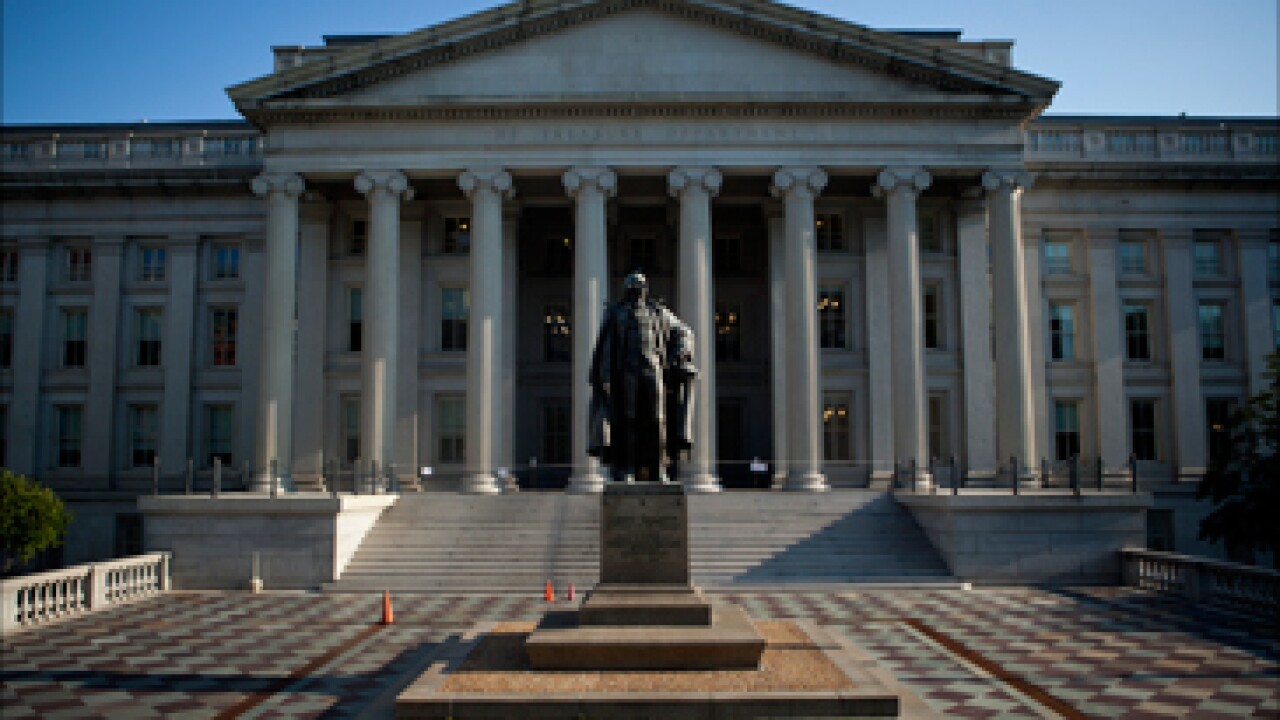Politics and policy
Politics and policy
-
Omeed Malik, who runs a merchant bank and a hedge fund, is a Republican donor and works with Republican-linked businessmen including Donald Trump Jr.
April 14 -
A Department of Government Efficiency team is working with FDIC leadership to "increase efficiency," which could include cuts to contracts and streamlining staff. FDIC says DOGE staffers have "appropriate clearances."
April 10 -
In a speech at the American Bankers Association Washington Summit Wednesday morning, Treasury Secretary Scott Bessent downplayed economic risks from tariffs, floated capital reforms and urged regulatory relief for community banks.
April 9 -
Senate Banking Committee Chairman Tim Scott said Jonathan McKernan's final confirmation vote to lead the Consumer Financial Protection Bureau is "imminent."
April 8 -
Federal Reserve officials want to see how exactly new trade policies impact the U.S. economy before adjusting interest rates. Markets and monetarists have different ideas about what that might look like.
April 8 -
JPMorgan Chase's CEO emphasized his concerns about geopolitical conflict and brought up recent culture shifts at the bank in his annual letter to shareholders.
April 7 -
The central bank wants to let Trump's policies play out across the economy before deciding which way to move interest rates, and it's too soon to know what the impacts will be, the Federal Reserve chair said.
April 4 -
House Republicans, led by House Financial Services Committee Chairman French Hill, R-Ark., outlined their priorities for the Trump administration's banking agenda in a series of letters to key regulators.
April 1 -
The Trump administration is leapfrogging the normal process by taking its fight over a district court injunction blocking efforts to shut down the Consumer Financial Protection Bureau to a federal appeals court, according to the CFPB workers' union.
April 1 -
The Trump administration continues to battle the Consumer Financial Protection Bureau's union by seeking a stay of a preliminary injunction that reinstated the CFPB's workforce and contracts and preserved its data.
March 31 -
The Federal Reserve governor said it is healthy to examine the regulatory architecture, but stressed the importance of the central bank having insight into the banking system.
March 28 -
The Treasury Department told the OMB that all 11 programs in the CDFI Fund are statutorily mandated. The White House said "no final decisions have been made" about the programs.
March 28 -
In a paper, former central bank researchers make the case that the Federal Reserve could better support the Treasury market from disruptions in the cash-futures basis trade by hedging its asset purchases.
March 26 -
The Consumer Financial Protection Bureau has rehired more than 100 fire employees, but the union claims dozens of employees have not been reinstated in violation of a federal court order.
March 21 -
The issues are hindering the Federal Deposit Insurance Corp.'s ability to meet its regulatory duties, according to the agency's Office of Inspector General.
March 20 -
After the Federal Reserve moved to slow the pace of quantitative tightening, the Fed chair floated the idea of continuing to allow mortgage-backed securities to roll off its books even after the central bank has met its monetary policy objectives in reducing its balance sheet.
March 19 -
President Donald Trump's executive order severely limiting the Treasury's Community Development Financial Institution Fund has thrown the industry into confusion as financial companies try to quantify the damage.
March 18 -
An executive order issued late Friday cut the Treasury Department Community Development Financial Institution Fund and other federal programs to their legal minimum.
March 15 -
A Maryland judge temporarily halted mass layoffs of probationary employees at multiple agencies, citing legal violations and harm to states' ability to respond to unemployment needs.
March 14 -
New York Attorney General Letitia James announced new state legislation to ban unfair and abusive business practices, giving state regulators broader authority to crack down on consumer abuses.
March 13



















